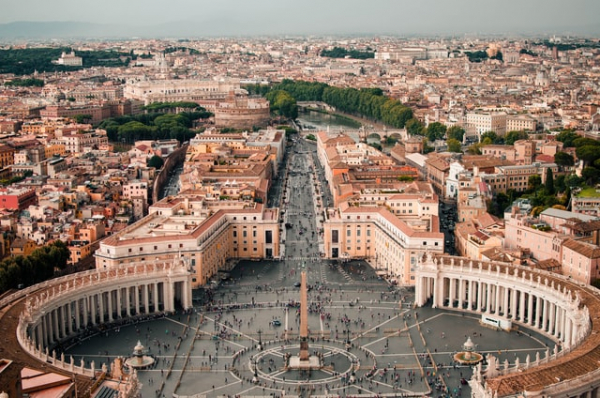
A University of Gothenburg Associate Professor of Sinology has reportedly called on the Vatican to speak out on China's "structural religious persecution."
According to the International Christian Concern (ICC), Professor Fredik Fallman from Sweden raised that the Vatican "keeps silent" over China's abuses on religious freedom and stressed that it should be treated in the same "standard" with other countries.
"The Catholic Church often comments on the situation in other countries. Yet in China, the Vatican keeps silent on many concerning developments - including structural religious persecution, labor rights issues, and human rights abuses against the Uyghurs. It seems Vatican officials are holding China to a different standard compared to other countries," Fallman told the ICC.
The ICC cited Hong Kong Bishop Emeritus Cardinal Zen in stating that the Vatican has been silent on the mass detention and abuses of the Uyghurs in Xinjiang from which the Sinicization campaign in Hong Kong originally started from "as a result of previous negotiations." Zen said that the said negotiations will "damage the work of evangelization."
"Tomorrow when people will gather to plan the new China, the Catholic Church may not be welcome," Zen said.
Fallman, the Sinology associate professor, stressed the need to have an international coalition that will pressure China and pointed out the need for true dialogue with it.
"True dialogue includes frank criticism and is the key to making real steps forward in relations with China," Fallman said.
Criticism
In similar news, the Wall Street Journal reported in November that Pope Francis decried the plight of the Uyghurs some weeks after a new Catholic bishop was ordained in China. The Wall Street journal said the Holy Father's comments came from his new book, "Let Us Dream," and has caused friction with the Chinese government.
Aljazeera added that the passage in the book referred to the "poor Uighurs" among people persecuted for their faith.
"I think often of persecuted peoples: the Rohingya, the poor Uighurs, the Yazidi--what ISIS (ISIL) did to them was truly cruel--or Christians in Egypt and Pakistan killed by bombs that went off while they prayed in church," Aljazeera quoted the pope in saying.
Aljazeera added that China has criticized the pontiff on this remark and denied it by saying that no such thing happens in China where "all ethnic groups enjoy the full rights of survival, development, and freedom of religious belief."
Continued denial despite evidence
China has repeatedly denied its persecution of people of faith despite various reports proving it.
The ICC noted that the Chinese Communist Party, under Xi Jinping, launched a "Sinicization" campaign in 2015, aimed at forcing all religious groups in China to embrace communist ideals in lieu of their beliefs.
Efforts to do this included requiring Christian churches to register with the state, then forcing churches to remove images of the Ten Commandments - to be replaced with Mao Zedong and Xi's teachings. Churches who refused to obey the CCP's mandates, such as registering to be part of the state-run church, or to remove crosses from church property, were persecuted.
Catholic churches were also required to register and be part of state-sanctioned Catholic churches.
Agreement with the Vatican
Vatican's agreement with the Chinese government in the appointment of bishops was made originally in 2018, the ICC raised, and renewed in 2020. The said agreement was meant to unite the CCP-run church -the Chinese Catholic Patriotic Association- and the underground Catholic Church.
As per the Vatican News last October 22, the Holy See and the Chinese government have renewed the Provisional Agreement for another two years since "the initial application has been positive" out of the "good communication and cooperation between parties" in so far as the appointment of bishops in China are concerned.
"The primary objective of the Provisional Agreement regarding the appointment of Bishops in China is that of sustaining and promoting the proclamation of the Gospel in that land, restoring the full and visible unity of the Church. In fact, the primary motivations that have guided the Holy See in this process, in dialogue with the Government leaders of that country, are fundamentally of an ecclesiological and pastoral nature," Vatican News said.
The Vatican News explained that misunderstandings have arisen regarding the agreement such that political issues were attributed to it when it shouldn't be such as the "existence of various problems regarding the life of the Catholic Church in China."
Last month, it was reported that the CCP will start appointing Catholic bishops without the Vatican's involvement.












